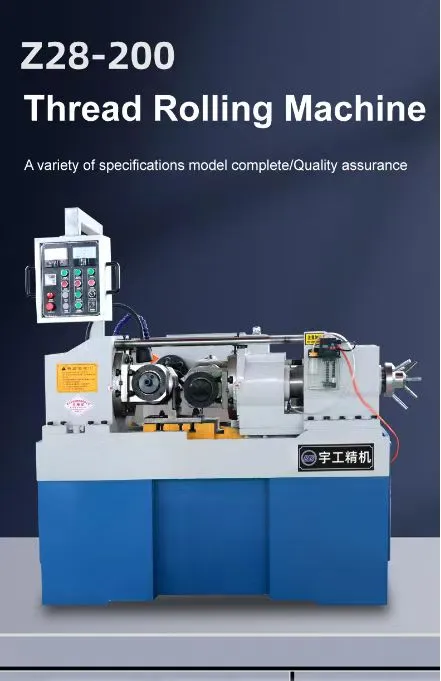
-
 Afrikaans
Afrikaans -
 Albanian
Albanian -
 Amharic
Amharic -
 Arabic
Arabic -
 Armenian
Armenian -
 Azerbaijani
Azerbaijani -
 Basque
Basque -
 Belarusian
Belarusian -
 Bengali
Bengali -
 Bosnian
Bosnian -
 Bulgarian
Bulgarian -
 Catalan
Catalan -
 Cebuano
Cebuano -
 Corsican
Corsican -
 Croatian
Croatian -
 Czech
Czech -
 Danish
Danish -
 Dutch
Dutch -
 English
English -
 Esperanto
Esperanto -
 Estonian
Estonian -
 Finnish
Finnish -
 French
French -
 Frisian
Frisian -
 Galician
Galician -
 Georgian
Georgian -
 German
German -
 Greek
Greek -
 Gujarati
Gujarati -
 Haitian Creole
Haitian Creole -
 hausa
hausa -
 hawaiian
hawaiian -
 Hebrew
Hebrew -
 Hindi
Hindi -
 Miao
Miao -
 Hungarian
Hungarian -
 Icelandic
Icelandic -
 igbo
igbo -
 Indonesian
Indonesian -
 irish
irish -
 Italian
Italian -
 Japanese
Japanese -
 Javanese
Javanese -
 Kannada
Kannada -
 kazakh
kazakh -
 Khmer
Khmer -
 Rwandese
Rwandese -
 Korean
Korean -
 Kurdish
Kurdish -
 Kyrgyz
Kyrgyz -
 Lao
Lao -
 Latin
Latin -
 Latvian
Latvian -
 Lithuanian
Lithuanian -
 Luxembourgish
Luxembourgish -
 Macedonian
Macedonian -
 Malgashi
Malgashi -
 Malay
Malay -
 Malayalam
Malayalam -
 Maltese
Maltese -
 Maori
Maori -
 Marathi
Marathi -
 Mongolian
Mongolian -
 Myanmar
Myanmar -
 Nepali
Nepali -
 Norwegian
Norwegian -
 Norwegian
Norwegian -
 Occitan
Occitan -
 Pashto
Pashto -
 Persian
Persian -
 Polish
Polish -
 Portuguese
Portuguese -
 Punjabi
Punjabi -
 Romanian
Romanian -
 Russian
Russian -
 Samoan
Samoan -
 Scottish Gaelic
Scottish Gaelic -
 Serbian
Serbian -
 Sesotho
Sesotho -
 Shona
Shona -
 Sindhi
Sindhi -
 Sinhala
Sinhala -
 Slovak
Slovak -
 Slovenian
Slovenian -
 Somali
Somali -
 Spanish
Spanish -
 Sundanese
Sundanese -
 Swahili
Swahili -
 Swedish
Swedish -
 Tagalog
Tagalog -
 Tajik
Tajik -
 Tamil
Tamil -
 Tatar
Tatar -
 Telugu
Telugu -
 Thai
Thai -
 Turkish
Turkish -
 Turkmen
Turkmen -
 Ukrainian
Ukrainian -
 Urdu
Urdu -
 Uighur
Uighur -
 Uzbek
Uzbek -
 Vietnamese
Vietnamese -
 Welsh
Welsh -
 Bantu
Bantu -
 Yiddish
Yiddish -
 Yoruba
Yoruba -
 Zulu
Zulu
Affordable Thread Rolling Machine Pricing and Quotes for Your Business Needs
The Price Quotes of Thread Rolling Machines An Overview
Thread rolling machines play a crucial role in various manufacturing processes, particularly in the production of high-precision threaded components used in industries ranging from automotive to aerospace. As manufacturers evaluate the best options for their production lines, the price of thread rolling machines becomes a significant factor to consider. This article aims to provide an overview of the current market trends related to thread rolling machine price quotes and the various factors that influence these prices.
Understanding Thread Rolling Machines
Thread rolling is a forming process that uses dies to create threads on a cylindrical workpiece. Unlike traditional cutting processes, thread rolling significantly reduces material waste and increases the strength of the threads produced. This method is commonly used for creating bolts, screws, and other fasteners. The machines used for this process vary in design, size, and capabilities, leading to a broad spectrum of price quotes.
Current Market Trends
As of 2023, the price of thread rolling machines can range significantly based on specifications and capabilities. Basic manual machines may start around $5,000, whereas high-end automatic models can exceed $100,000. Market trends indicate an increasing demand for automated solutions, which tend to command higher prices due to their efficiency and precision.
One notable trend is the rising interest in compact and versatile machines that can handle various materials and thread profiles. These machines cater to small and medium-sized enterprises (SMEs) looking to optimize their production without making a massive financial investment. Prices for these versatile models typically range from $10,000 to $50,000.
Factors Influencing Prices
thread rolling machine price quotes

Several factors play a role in determining the price quotes for thread rolling machines
1. Type of Machine The most significant factor affecting the price is the type of machine. Crank-type, planetary, and flat die machines each have different price points based on their complexity and production capabilities.
2. Automation Level Fully automated machines offer higher efficiency and reduced labor costs, which can lead to a higher purchase price. In contrast, manual machines may be less expensive but require more labor input, which can impact overall production costs.
3. Material and Size The size and materials used in manufacturing the machine can significantly affect its price. Larger machines built with high-grade materials typically command higher prices due to their durability and longevity.
4. Brand and Manufacturer Established brands with a reputation for quality and reliability often charge a premium for their machines. Purchasing from reputable manufacturers also tends to come with better after-sales support and service options.
5. Customization Options Many manufacturers offer customization options to fit specific production needs. Custom features can increase the cost of a machine significantly, as they require more design time and engineering support.
Conclusion
In summary, the price quotes for thread rolling machines vary widely based on various factors, including machine type, automation, material quality, and brand reputation. Manufacturers must carefully evaluate their specific needs and budget constraints when considering a purchase. As the market evolves, it is essential to stay updated on price trends and emerging technologies that could impact both costs and operational efficiency. Investing in quality thread rolling machines can lead to significant savings in terms of material waste and labor, making it a crucial decision for manufacturers aiming for growth and competitiveness in the industry.
